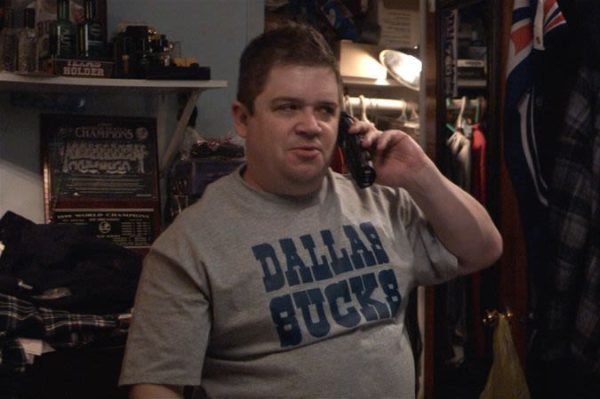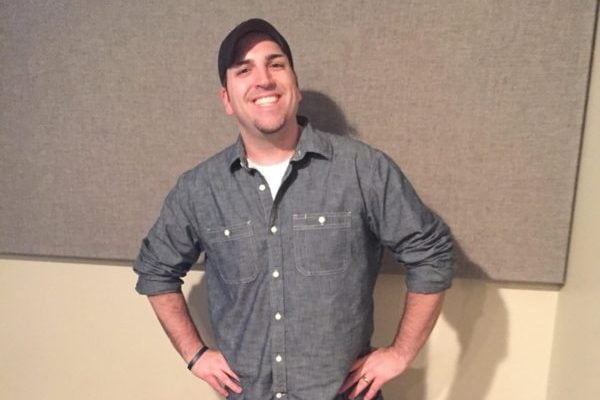Michael Savage isn’t the kind of guy that I would usually write nice things about. First, he’s a conservative talk radio host. It is the job in this industry that requires the absolute least amount of creativity and/or effort. Also, as the son of an immigrant, a guy that shouts things like “Read my lips: no new immigrants!” into a mic can kiss the hairiest part of my ass.

Now, let me pivot to the thesis of today’s column, which is mostly me saying something nice about Michael Savage. He was profiled by the New York Times last week. The point of the piece, written by Jeremy W. Peters, seemed to be “isn’t it weird that this guy won’t give Donald Trump credit for everything when that’s what his audience tells him they want him to do?”.
The more sports talk radio I listen to the more I am surprised by the number of hosts that don’t realize their opinions and topic selection don’t have to be influenced by phone calls, texts, or Twitter. Those people may be our listeners, but they are a very, very small percentage of our listeners. As a host or executive producer, your obligation isn’t to them. It is to the larger slice of the pie.
That larger slice of the pie is coming to you to be entertained and informed. You deliver that by focusing on the topics most relevant to your market and delivering the opinions that will evoke a reaction from the majority of your listeners. They don’t have to agree with you or even like what you’re saying. You just can’t bore them.
In the New York Times profile, Savage’s audience is painted as blindly loyal to the president. Savage, who was one of the first national media hosts to support the reality TV star in his 2016 presidential bid, has expressed not just reservations, but disappointment in the first two and a half years of the Trump era.
“To too many people he’s not a human being, he’s a demigod,” Mr. Savage said one afternoon after wrapping up a broadcast from his home studio, which sits on a hilltop overlooking San Francisco Bay. This especially includes his colleagues in the conservative media, he said. “It’s embarrassing to listen to some of these people.”
Jeremy W. Peters, The New York Times
Scoffing at the suggestion that he was playing with fire by criticizing the man he once hailed as the “Winston Churchill of our time,” Mr. Savage posed a rhetorical question: “I’m going to get up every morning and do nothing but say how great he is?”
Savage expresses the same frustration I have any time I hear a host refer to a local team as “we” or bends over backwards to explain how the layman missed all the good development that happened in a 100-loss baseball season.
Your job isn’t to be a cheerleader. Your job is to be interesting, and because you can’t see the skimpy outfits, there is nothing interesting about a cheerleader on the radio.

Another common misstep is trying to cater to the loudest voice. Every market has sports fans that are passionate about something that doesn’t have a major local following. For instance, the other day I was returning from a road trip and heard a caller get on air that wanted to know why the host wouldn’t talk about the Stanley Cup Finals. Rather than say “because we’re in a Southeastern city that doesn’t even have an NHL team,” the host apologized for not talking about the event more and agreed that there should be more local hockey fans. That opinion, the host said, came from getting a text the day before that said something similar.
“Yeah, that was me,” the caller said.
There is a simple lesson here. The loudest mouth is still only a single voice.
It’s impossible to do a show built on telling your audience only what it wants to hear. Your audience is made up of a lot of different people. When it comes to anything beyond the front page, there’s no consensus on what they all want to hear.
Listener interaction is a staple of most talk shows no matter the format. Just remember that it isn’t a necessity. Bringing phone calls, texts, and Tweets to the air only makes sense if it makes your show better. It may run counterintuitive to your way of thinking, but the truth is that when it comes to listener interaction, you don’t owe the caller or texter anything. If someone is going to pick up his or her phone with the intention of getting on air, he or she owes you good content. It’s why every Paul Finebaum caller has a schtick.

You can’t entertain your audience if you are trying to appease your callers. Surely you’ve seen or heard the stat that in your entire career only 2% of the people that listen to you will ever be motivated enough to pick up a phone and call. Maybe that number has risen as we have added texts and Tweets to the listeners’ options, but the fact is that the number still represents a very small sample of the total listeners.
Michael Savage and his audience probably agree on way more than they disagree, but Savage is comfortable with that disagreement. He doesn’t see a need to compromise where he and the listeners don’t see eye to eye. I still think the guy is an old, xenophobic doofus, but I admit that a lot sports talk hosts can learn from the way he prioritizes his responsibility to entertain the wider audience over the need to be liked by the most vocal subset.

Demetri Ravanos is a columnist and features writer for Barrett Media. He is also the creator of The Sports Podcast Festival, and a previous host on the Chewing Clock and Media Noise podcasts. He occasionally fills in on stations across the Carolinas in addition to hosting Panthers and College Football podcasts. His radio resume includes stops at WAVH and WZEW in Mobile, AL, WBPT in Birmingham, AL and WBBB, WPTK and WDNC in Raleigh, NC.
You can find him on Twitter @DemetriRavanos or reach him by email at DemetriTheGreek@gmail.com.







